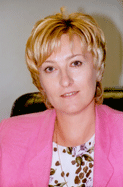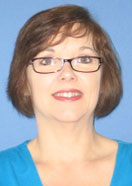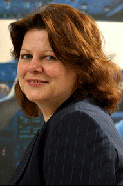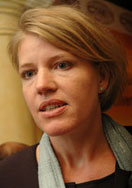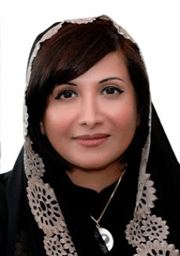|

Jo Frigger is extremely content. “So
far 2010 was our most successful year as EMO Group,” stated forwarding
agent EMO-Trans’ North American Chairman and CEO.
“The revenue increased to USD$350
million U.S. dollars, compared to USD$250 million in 2009.”
Important markets like China, Latin America,
India and Southeast Asia stabilized and EMO’s global network expanded
further with establishment of new offices in Minneapolis, Seattle, Adelaide,
Auckland and Nuremberg, thus enlarging the worldwide reach.
These were the key messages Frigger delivered
to the more than 120 EMO-Trans representatives and delegates from international
partner agencies gathered in Frankfurt, Germany on the occasion of the
agent’s 10th Global Network & Partner Meeting, which took
place March 27-31.
Air freight remains EMO’s prime
business, accounting for roughly 60 percent of the total turnover, but
ocean freight, which for many years has been of secondary importance,
is on the rise, accounting for nearly 40 percent of the annual turnover.
"In 2010 we moved more TEU’s
than ever before,” stated Jo, adding that “markets are rapidly
changing with customers getting tougher and rate structures more complicated.”
The global EMO partners’ network
produced nearly U.S. $200 million in airfreight revenue and shipped
more than 150,000 TEUs. The executive concluded his speech by asking
the EMO representatives and their network partners to push ahead with
value-added services, provide utmost quality to shippers and consignees
and increase investments for IT development, compliance and security.
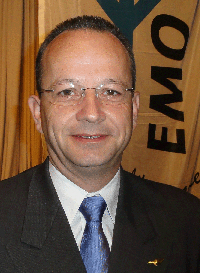 Thomas
Huchler, member of Germany’s EMO-Trans managing group, fully agreed
by emphasizing that, “our customers seek more than the relatively
simple carriage of goods from point to point. They demand more visibility
and less interfaces in the entire supply chain.” Thomas
Huchler, member of Germany’s EMO-Trans managing group, fully agreed
by emphasizing that, “our customers seek more than the relatively
simple carriage of goods from point to point. They demand more visibility
and less interfaces in the entire supply chain.”
Having said this, Huchler announced the
creation of EMO-LOG GmbH, a Stuttgart-based subsidiary for customized
global logistics. A key account of the newly established firm, which
commenced operations April 1, is Brooks Sports GmbH. Brooks Sports designs
and markets footwear, apparel and accessories in more than 40 countries
worldwide. While EMO-Trans organizes the air and sea transports of all
Europe-bound shipments on behalf of Brooks, the new LOG subsidiary is
responsible for value-added services like commissioning, storing, picking
and packing, and preparing the packages for final delivery.
“This extremely customized product
is a pure B2B endeavor,” explained EMO-LOG’s Managing Director,
Frank Wachter, and it will “hopefully open up doors for additional
users and thus extend our own portfolio.” He estimates EMO-LOG
will handle roughly 700,000 pairs of shoes and 300,000 packages of apparel
until year’s end, thus turning over one million euros in the remaining
nine months.
In addition to announcing this new subsidiary
for the company, EMO-Trans welcomed new partner agencies that are joining
the group and helping to widen its market presence.
An important new partner in EMO’s
African market and in the U.S. and Canada is French service provider
SAGA, (see story below) a member of the mighty Bolloré group.
“We signed an agreement with the
EMO group giving us full responsibility for their business from Sub-Sahara
to Mozambique and Angola, but excluding South Africa,” described
SAGA’s Directeur Général, Olivier Boccara, of the
accord. At the same time, EMO will refrain from establishing its own
stations or branches in countries like Nigeria, Tanzania, Togo, Angola,
etc. In return, SAGA’s New York and Los Angeles offices will be
fully integrated into EMO’s organization in the U.S.
“We’ll manage their North
American business while they become responsible for our entire shipments
to and from Africa,” said Jo Frigger.
In addition to SAGA, Irish agent, Quinn
Freight Forwarding and Portuguese Spedycargo Transitários joined
the EMO world network.
 Left
to right—Jenni Frigger Latham, Director-Global Network EMO Trans,
Harald Zielinski, Lufthansa Cargo’s Head of Security and Environment
and Jo Frigger, EMO Trans North American Chairman and CEO. Left
to right—Jenni Frigger Latham, Director-Global Network EMO Trans,
Harald Zielinski, Lufthansa Cargo’s Head of Security and Environment
and Jo Frigger, EMO Trans North American Chairman and CEO.
In a noteworthy presentation, guest speaker
Harald Zielinski of Lufthansa Cargo raised the question of whether consistently
tougher and more security regulations imposed by state authorities like
Washington’s TSA might threaten future growth of air freight.
“From my practical point of view,
an increasing number of regulations established by both the TSA and
the European Union mean more and more challenges for the airlines.”
He strongly opposed the increasing development
of different security regimes on a global scale without synchronization.
“We have a very stringent control system in Europe including certified
known shippers, authorized regulated agents, ground handlers, and airlines
that has proven to be highly efficient,” stated Harald.
“This security regime, however,
is not accepted by the U.S. authorities. We desperately need a harmonization
of the international security measures in our global industry.
“Cargo security all around the globe
is currently focused only on one national rule – that of the U.S.”
He urged both Washington and Brussels
to quickly sit down together to structure compatible, mutually acceptable
and workable security standards.
Zielinski also questioned whether the
rule 100 percent x-raying of shipments flown in the lower decks of passenger
airlines demanded by the TSA as of January 1, 2012, is the ultimate
solution. “Screening has its limits,” he said. As an example,
he mentioned a box full of metal screws with a hidden device in between.
“An x-ray machine cannot detect this explosive,” said Zielinski.
His conclusion: A multi layered approach consisting of x-raying, sniffing
dog controls and physical spot checks secures air freight much more
efficiently than just the screening of goods.
EMO’s Jo Frigger commented: “My
greatest concern is that any customer not complying with TSA’s
and Customs’ rules is in danger of losing business right on the
spot. Our job is to help customers find their way through the jungle
of regulations.”
Heiner Siegmund /Flossie
|



